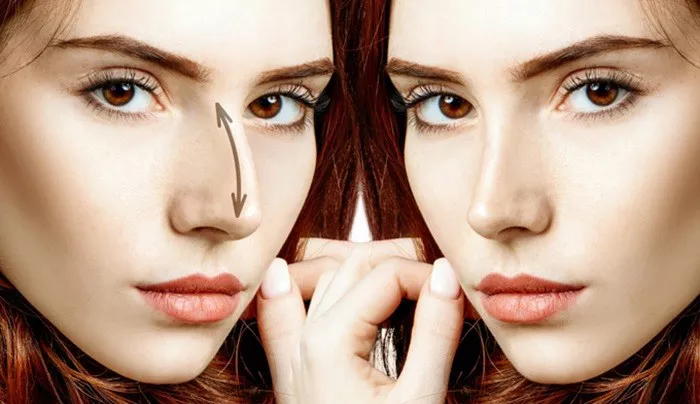Rhinoplasty, commonly known as nose surgery or a nose job, is a popular cosmetic procedure aimed at improving the appearance and functionality of the nose. Many people consider rhinoplasty for various reasons, including cosmetic enhancement, correction of birth defects, or repair after injury. One of the most common questions potential patients have is: What is the best age to have a nose surgery? This article will delve into the factors that influence the ideal age for rhinoplasty, addressing both physical and psychological considerations.
Understanding Rhinoplasty
What Is Rhinoplasty?
Rhinoplasty is a surgical procedure that reshapes the nose. It can alter the nose’s size, shape, or proportions. The surgery can also correct breathing problems related to the nose.
Types of Rhinoplasty
There are two main types of rhinoplasty: cosmetic and functional. Cosmetic rhinoplasty focuses on enhancing the nose’s appearance, while functional rhinoplasty aims to improve breathing or correct deformities.
Factors Influencing the Best Age for Rhinoplasty
Physical Maturity
The primary factor determining the best age for rhinoplasty is physical maturity. The nose needs to be fully developed before undergoing surgery.
Adolescents and Rhinoplasty
Girls: Generally, girls’ noses stop growing between ages 15 and 16.
Boys: Boys’ noses usually stop growing between ages 17 and 18.
It’s crucial to wait until the nose has fully developed to avoid potential complications or the need for revision surgery.
Psychological Maturity
Rhinoplasty is a significant decision that requires emotional and psychological readiness.
Emotional Readiness in Adolescents
Adolescents need to have realistic expectations and understand the implications of the surgery. They should be emotionally stable and able to handle the outcome, whether positive or negative.
Health and Medical Considerations
General health is another important factor. Candidates should be in good overall health to minimize risks during surgery and ensure proper healing post-operation.
Medical Conditions and Rhinoplasty
Certain medical conditions might affect the decision to undergo rhinoplasty. For example, bleeding disorders or severe cardiovascular issues may pose significant risks.
See Also: 7 Reasons to Have a Secondary Rhinoplasty
Rhinoplasty for Adolescents
Benefits of Early Rhinoplasty
Enhanced Self-Esteem: Correcting a nasal deformity early can boost an adolescent’s self-esteem and confidence.
Social Benefits: Adolescents may feel more socially accepted and less self-conscious.
Risks of Early Rhinoplasty
Growth Complications: If performed too early, rhinoplasty can interfere with nasal growth, leading to complications.
Emotional Readiness: Adolescents may not be fully prepared for the psychological impact of surgery.
Rhinoplasty for Adults
Benefits of Adult Rhinoplasty
Mature Decision-Making: Adults are typically better equipped to make informed decisions about their surgery.
Stable Nasal Structure: The nose has fully matured, reducing the risk of growth-related complications.
Challenges in Adult Rhinoplasty
Healing Process: Healing may take longer in adults compared to younger patients.
Higher Expectations: Adults may have more fixed expectations, which can sometimes lead to dissatisfaction if results don’t meet their ideals.
Rhinoplasty in Later Life
Older Adults and Rhinoplasty
Rhinoplasty can be performed on older adults, but certain factors must be considered.
Health Considerations
Chronic Conditions: Older adults are more likely to have chronic conditions that could complicate surgery.
Skin Elasticity: Skin loses elasticity with age, which can affect the outcome of rhinoplasty.
Benefits for Older Adults
Functional Improvement: Rhinoplasty can improve breathing issues that might have worsened with age.
Aesthetic Enhancement: It can provide a rejuvenated appearance, boosting self-confidence.
Consultation with a Rhinoplasty Surgeon
Initial Consultation
A thorough consultation with a qualified rhinoplasty surgeon is essential. During this consultation, the surgeon will assess the patient’s nasal structure, overall health, and readiness for surgery.
Discussion Topics
Patient’s Goals: Understanding the patient’s reasons for seeking rhinoplasty.
Medical History: Reviewing any medical conditions or previous surgeries.
Expectations: Discussing realistic outcomes and potential risks.
Customized Surgical Plan
Based on the consultation, the surgeon will develop a personalized surgical plan tailored to the patient’s needs and goals.
Conclusion
The best age to have nose surgery varies depending on individual circumstances. Physical maturity, psychological readiness, and overall health are crucial factors. Adolescents should generally wait until their nose has fully developed, while adults and older individuals need to consider their health and skin condition. Consulting with a qualified rhinoplasty surgeon is essential to determine the optimal timing for surgery and ensure the best possible outcome.
Related topics:

